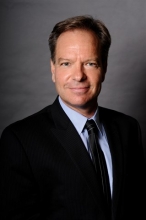CEE Seminar: Hyundai Motor America Seminar Series on Technology Innovations & The Future of Transportation

Director of Engineering & Quality
Hyundai Motor America
Abstract: Alternative energy vehicles, including fuel cell, battery electric and plug-in hybrid technologies, require substantial infrastructure support for rapid dissemination in the marketplace. This seminar describes the main characteristics of the Hyundai Fuel Cell and PHEV models and addresses some of the challenges related to the fueling and charging network available for these vehicles.
Biography: Mircea Gradu, Ph.D., joined Hyundai Motor America in May 2014 as director of Engineering and Quality. Gradu leads the development and implementation of product strategy to improve both the initial quality of Hyundai models and vehicle durability. Gradu has more than 23 years of automotive experience, most recently serving as vice president and head of Transmission Powertrain and Driveline Engineering for Chrysler Group LLC. Gradu’s distinguished career includes being the recipient of the 2008 Edward Cole Award for Automotive Innovation, the 2005 Forest McFarland Award and the SAE-Timken Howard Simpson Innovation Award from the Society of Automotive Engineers (SAE). Gradu was appointed SAE Fellow in 2011. Gradu was listed among the 50 most influential automotive executives in 2012 by Motor Trend. He has been awarded 56 patents on mechatronic automotive systems, and published over 40 papers. Gradu holds a doctorate in mechanical engineering from the University of Stuttgart, Germany, and a master’s degree in mechanical engineering from the Polytechnic Institute of Bucharest. He enjoys classic car driving and restoration, travel and outdoor recreation, including mountain biking, skiing and kiteboarding.
ITS-Irvine is delighted to partner with Hyundai Motor America to present the 2015-16 Seminar Series on Technology Innovations and the Future of Transportation. Co-Sponsored by the University of California Center on Economic Competitiveness in Transportation
Share
Upcoming Events
-
MSE Special Seminar: Architecting 3D Complex Materials for Sustainability
-
MSE Special Seminar: Decarbonizing Industries for a Climate-resilient Future - From Renewable Energy to Sustainable Material Recovery
-
MAE 298 SEMINAR: Technology Developments for FIR Bolometric Detector Focal Plane Assemblies
-
CBE 298 Seminar: The Wisdom of the Crowd: Watching Bacterial Collectives (Re)shape Themselves
-
CEE Seminar: BIM and the Digital Twin
